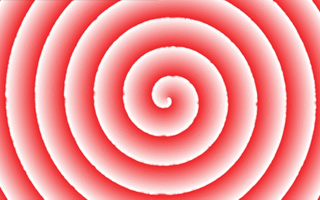This is more embarrassing and hard to admit than anything else I’ve written so far, but in July, I started seeing a palm reader.
It started as a whimsical decision: My bus home was uncomfortably cramped, and the morning’s rain meant I could actually breathe in spite of the D.C. humidity. I got off a stop early on Georgetown’s Main Street and began the one-mile trek home. That’s when the rainbow sign advertising “Palm Reading $10 Special” caught my eye.
I had always wanted to get my fortune told. The desire was a combination of growing up surrounded by superstitious parents and my own personal conviction that fortune-telling was nothing more than a pseudoscience. Ten dollars wasn’t too steep of a price for satisfying my curiosity to see just how wrong psychics were.
Things didn’t go quite as planned. Instead of leaving amused and skeptic, I got a lesson on just how persuasive pseudoscience can be and on what the missing piece in my formal counseling treatments was.
The reading started out unconvincingly enough, full of overly general statements on longevity, health, kids — all that you would expect to hear from a quack. Yet suddenly, she began detailing scarily accurate accounts of my depression, anxiety, and chronic fatigue. I was in complete shock. The same symptoms I had spent years trying to explaining to share with friends who responded with a shocked “Really? I had no idea you were going through that!” were suddenly being identified without me saying a single thing.
I didn’t care if she was simply throwing out random guesses. I didn’t even care if this was her default dialogue. For the first time since seeking treatment, I felt the relief of being understood — of not having to tirelessly explain myself over and over again. It was such a new and intense feeling that my eyes welled up. With just a few “predictions,” this psychic, quack, whatever you want to call her, had managed to do what my counselor of four months had failed to do even once — shatter my façade of nonchalant confidence into pieces. One visit thus became two.
While, professional counseling is a great and important service, it can — like the rest of the medical community — be too sterile and unfriendly. Whereas the psychic kept in contact with me as casually as a friend through text, medical professionals generally tiptoe around the patient’s confidentiality and use secure messaging; this meant having to log into the Harvard University Health Services Patient Portal every time I received or wanted to send a message. And whereas my appointments with the psychic were flexible, I knew that my counselor’s calendar was packed to the brim. This meant that I had to make every appointment exactly as scheduled — whether I was having a good week and just wanted to enjoy it, or was having an awful one that needed more support than I was getting.
While logistical necessity gives the Counseling and Mental Health Services very little flexibility for these two issues, it was ultimately the way my psychic structured our counseling sessions that helped me heal. At Harvard, my counselor gave me so much space that I was left with no gravity. Each conversation reliably began with the uninspiring demand to tell him “about my week.” Yet it was never clear if he meant yesterday, or today, or perhaps the two good days I had over the weekend. There was the constant refrain of “tell me more” that was repeated so much I almost wished I could still analyze dreams and repressed memories with Freud.
Depression is a hard thing to explain. And being asked to repeatedly psychoanalyze myself in this way essentially put me on the witness stand. Instead of feeling comfortable and open to suggestion, I felt defensive and stubborn.
In contrast to the counselor, my psychic led with concrete questions and even confident statements about the things she had “seen.” Instead of telling me to simply describe my week, she asked about my day, if I was feeling better, how the meditations had been, what had triggered the low points, and more. Instead of asking me to explain why I thought the week had happened as it did, she reassured me that the mood swings were natural, and that I had to wait another week for the meditations (and her superstitious ceremonies) to take effect.
By being pushy and guaranteeing me that what she did with me would work, the psychic was able to do yet another thing that my counselor was never able to: follow through on her assignments. This included everything from nightly meditations and restraining myself from saying negative things, to doing only the things I actively wanted to (no “Why not?”s) and fully connecting with only the people who brought me joy.
Her explanations as to why I ought to do these things may have been pseudoscience, but the positive habits she helped me adopt were not. They were the same things my counselor had “suggested,” but never truly pushed me to do the way the psychic did: extracting promises, ensuring me that I wouldn’t just be “wasting my time” through promises of effectiveness, and giving me simple and effective instructions. Ultimately, these positive habits amounted to a kind of informal cognitive behavioral therapy and helped me truly overcome my depression.
While I will never change my mind on the lack of scientific validity for palm-reading, my own experience has confirmed what many of the Americans relying on the “wellness” industry and even alternative medical options know: The medical community may have science, but it is severely lacking in the personal touches that turn treatment into healing. Only by being human and charismatic can counselors give their patients not only the skills and medication they need, but the reassurance and confidence that inspire patients to rely on them as well.
Elizabeth Y. Sun ’19, a former Crimson Associate Editorial Editor, is a Government concentrator in Eliot House. Her column appears on alternate Thursdays.
Read more in Opinion
The Consumption Problem at Harvard (and Everywhere Else)Recommended Articles
-
 My Favorite Things
My Favorite Things -
The FearThen, he turned off the light, but of course I kept going. I did not need to see my limbs moving, taking shape — he knew any possible form they could take anyway. He knew it better than anyone, and besides, now I could be wilder, even less controlled.
-
 Chicken Soup with a Side of Hypnosis
Chicken Soup with a Side of Hypnosis -
 In Defense of Ignorance
In Defense of Ignorance -
 Stop Two: Metro Center
Stop Two: Metro Center













